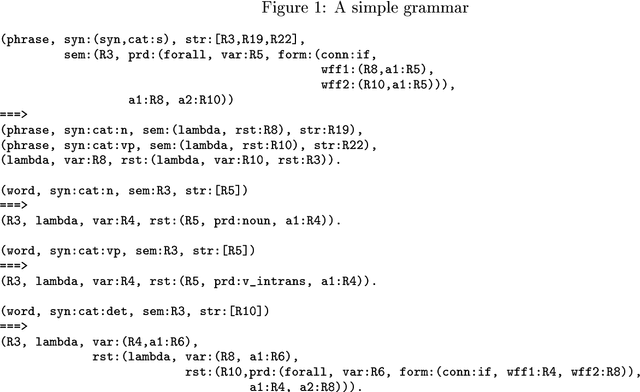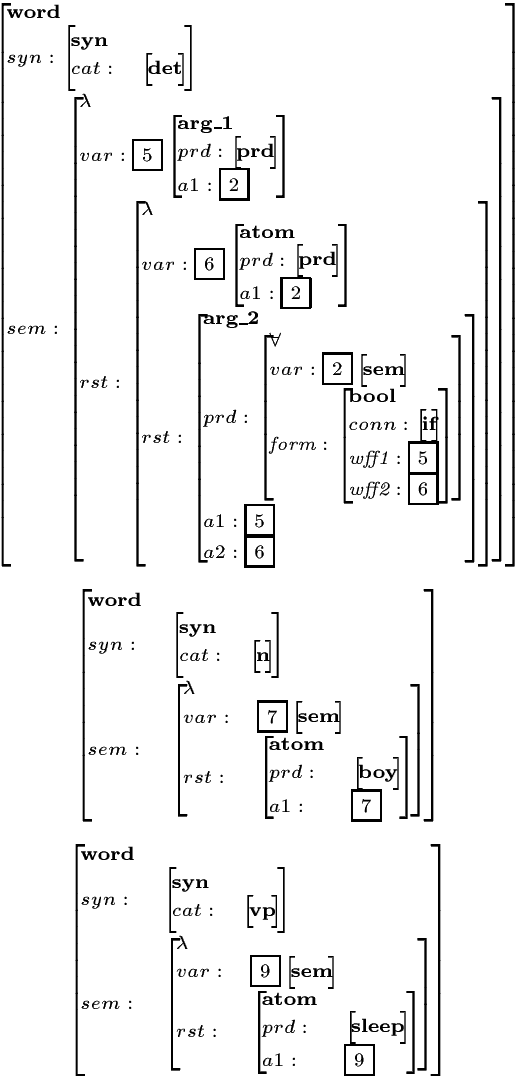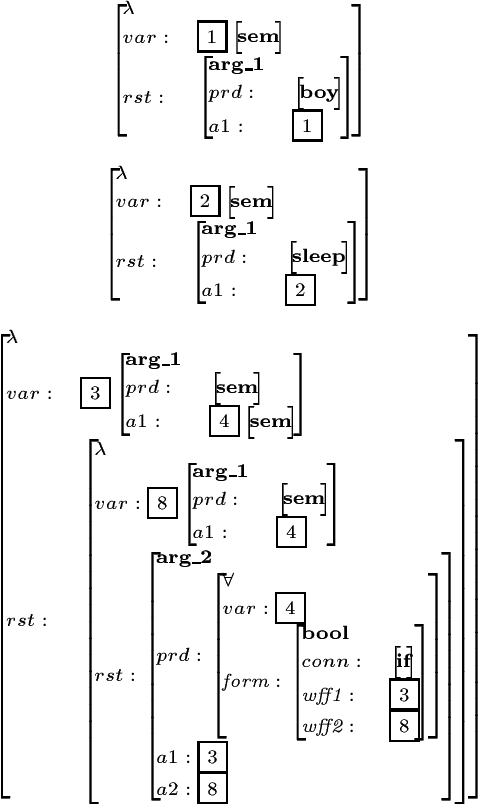Amalia -- A Unified Platform for Parsing and Generation
Paper and Code
Sep 24, 1997



Contemporary linguistic theories (in particular, HPSG) are declarative in nature: they specify constraints on permissible structures, not how such structures are to be computed. Grammars designed under such theories are, therefore, suitable for both parsing and generation. However, practical implementations of such theories don't usually support bidirectional processing of grammars. We present a grammar development system that includes a compiler of grammars (for parsing and generation) to abstract machine instructions, and an interpreter for the abstract machine language. The generation compiler inverts input grammars (designed for parsing) to a form more suitable for generation. The compiled grammars are then executed by the interpreter using one control strategy, regardless of whether the grammar is the original or the inverted version. We thus obtain a unified, efficient platform for developing reversible grammars.
 Add to Chrome
Add to Chrome Add to Firefox
Add to Firefox Add to Edge
Add to Edge